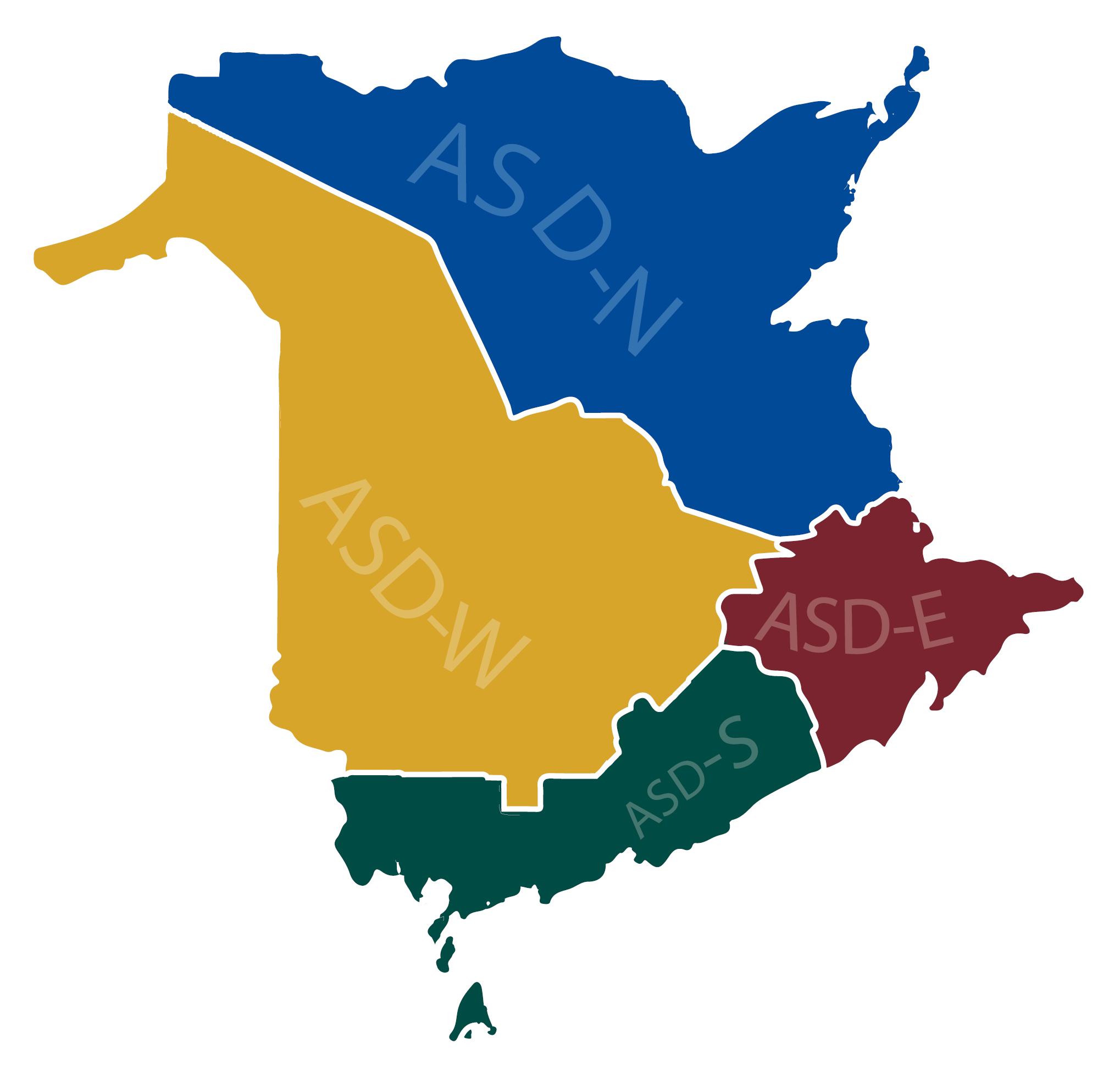
WHAT IS THE CONNECTION BETWEEN RESPONSE TO INTERVENTION (RTI)
AND POSITIVE BEHAVIOUR INTERVENTION SUPPORTS (PBIS)?
WHAT LEARNERS AND EDUCATORS GAIN IN PBIS SCHOOLS
All learners develop and learn social, emotional, and behavioural competence, supporting their academic engagement. All educators develop positive, predictable, and safe environments that promote strong interpersonal relationships with learners through teaching, modelling, and encouragement.

PBIS has helped to create clear expectations for all and created a more consistent implementation of these expectations in our school. Both staff and students have begun to use common language in regard to regulation and behaviours. There is a sense of both pride and ownership in the building among everyone. Implementing PBIS in our school has been a very positive experience and I recommend all schools begin this journey.
Eleanor Brown
Vice-Principal, Superior Middle School, New Brunswick, Canada
RESPONSE TO INTERVENTION (RTI) AND POSITIVE BEHAVIOUR INTERVENTION SUPPORTS (PBIS)
The Department of Education and Early Childhood Development promotes Response to Intervention (RTI) as a model for responding to students’ learning, behavioural, and social-emotional competencies. Positive Behaviour Intervention Supports (PBIS) is a behavioural framework that falls within the Response to Intervention model. The core principles of RTI/PBIS are:
- Creating improved outcomes for all students.
- Supporting early intervention.
- Using tiered models of support.
- Implementing research-based, scientifically validated interventions.
- Monitoring student progress to inform instruction and intervention.
- Employing data-informed decision-making.
EQUITY AND POSITIVE BEHAVIOUR INTERVENTION SUPPORTS (PBIS)
Educational systems cannot be considered effective until they are effective for all student groups. PBIS provides an ideal framework for increasing equity in learner outcomes. Research shows that schools implementing PBIS with fidelity have greater equity in school discipline, specifically in PBIS in efforts to reduce cultural disproportionality. However, PBIS teams may need to include equity-focused strategies in their action plans to achieve equitable outcomes for all student groups. (PBIS.Org, 2024)
MENTAL HEALTH AND POSITIVE BEHAVIOUR INTERVENTION SUPPORTS (PBIS)
Notably, the goals of PBIS and trauma-invested approaches align as they are both rooted in similar scientific principles. PBIS aims to establish a clear and predictable social environment, reduce problem behaviours associated with heightened internal distress, minimize classroom disruptions, and provide a structured framework for teaching adaptive social and emotional skills (McIntosh, Ty, & Miller, 2014). This recognition of childhood trauma and the effectiveness of multi-tiered prevention models have opened the door to integrating trauma-informed practices into PBIS. This integration involves district- and school-level teams, ensuring the consistent implementation of support systems across all tiers. District teams focus on resource allocation and policy development, while school teams handle data analysis, intervention planning, and progress monitoring. The ultimate objective is to seamlessly incorporate trauma-informed practices into existing procedures and provide support to all students across universal, targeted, and intensive tiers.
EDUCATION FOR EVERYONE THROUGH UDL: UNIVERSAL DESIGN FOR LEARNING (UDL) AND POSITIVE BEHAVIOUR INTERVENTION SUPPORTS (PBIS)
Universal Design for Learning (UDL) is an approach used as an inclusive and equitable way to provide instruction and assessment at a universal level for all learners. UDL takes into account the how, why, and what of learning. UDL perceives barriers in the learning environment, considers learner variability, and designs to make learning equitable for all learners. What is good for some is beneficial to all. This pedagogical approach of the UDL framework aligns with EECD’s flexible and responsive inclusive learning environment.
CULTURALLY RESPONSIVE POSITIVE BEHAVIOUR INTERVENTION SUPPORTS (PBIS)
In culturally inclusive environments, the identities of learners from a variety of cultures are recognized, respected, and honoured. Culture is understood as “ways of being, knowing and doing,” or, “what we do and why”). In PBIS, culturally inclusive practices are critical.
In culturally inclusive environments, educators:
- use a variety of teaching and assessment strategies, supported by modelling and scaffolding of expectations;
- affirm learners’ funds of knowledge by validating, representing and learning from diverse ways of knowing;
- respond positively to diverse cultural expressions and share their own;
- build trust with families, especially those from communities that may not have been provided positive schooling experiences in the past;
- recognize and participate in special events that school community members are experiencing;
- hold and demonstrate high expectations, while providing as many scaffolds as needed, when needed;
- collaborate with families and community to ensure that school initiatives are inclusive of all school members; and
- examine their own biases and cultural lenses and respond consistently and effectively to reports of prejudice, bias or discrimination.
In culturally inclusive environments, learners:
- see themselves positively represented through resources, materials, and stories, and at school events;
- feel that their voice and presence have equal space and weight in the environment;
- feel there is authentic space for sharing themselves through culture(s) and stories, and are validated if they choose to do so;
- feel safe and know what to expect; and
- are proud of who they are as they know their unique identity is respected and honoured.
Culturally responsive PBIS uses learners’ backgrounds, social experiences, prior knowledge, and learning frames of reference to develop relevant and effective supports at each tier. In PBIS, establishing a positive school culture means intentionally and collaboratively setting up the school’s social environment to reflect a shared vision of common values, beliefs, and behaviour expectations. Building responsive environments requires an understanding of how our school systems have been established, how well they support learners from varying cultures, and how they can be changed to ensure the support and validation of each learner (PBIS Cultural Responsiveness Field Guide 2021).

What impact has PBIS had on your school? / How is it helping you to make a difference in your school?
With the use of the PBIS framework Lomond now has common behaviour expectations, rules, and reward systems. Our handbook outlines our practices for the community and our monthly themes keep the staff and students focused on the positive behaviour that we explicitly teach. Loch Lomond now has data collection procedures in place to analyze behaviour and to hone our procedures as well as to create individual interventions for tier 2 and 3 students. PBIS provides the structure and interventions to achieve this vision.
Gail Crilley
Principal, Loch Lomond School, New Brunswick, Canada
